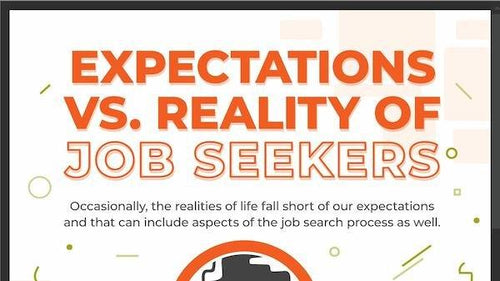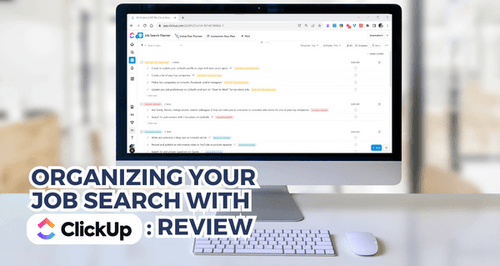Discover how to leverage your existing skills and experience while pursuing new career opportunities in healthcare and other industries. Whether you're considering nursing through accelerated programs or seeking to enhance your professional profile, learn proven strategies to position yourself for success in today's competitive job market.
The landscape of career advancement has evolved dramatically, with healthcare emerging as a particularly dynamic sector offering numerous pathways for professional growth. Understanding how to effectively present your transferable skills while pursuing additional qualifications can significantly impact your career trajectory.

This blog contains affiliate links, meaning I may receive a small commission (at no cost to you) if you subscribe or buy something through the links I share. I only share links to products or services that I use myself or absolutely love!
Maximizing Your Professional Experience During Career Transitions
Career changers often underestimate the value of their existing professional experience. When considering ABSN online programs or other career advancement opportunities, it's crucial to identify and articulate transferable skills that demonstrate your adaptability and potential.
Focus on highlighting leadership experiences, problem-solving abilities and interpersonal skills that translate across industries. Understanding how to frame past experiences in the context of your target role can significantly strengthen your candidacy and demonstrate your capacity for professional growth.
Strategic Resume Optimization for Healthcare Roles
Transform your resume into a powerful healthcare-focused marketing tool by strategically highlighting relevant competencies. While clinical expertise matters, employers increasingly value emotional intelligence, crisis management and adaptability. Create impact by quantifying achievements from previous roles – even those outside healthcare – that demonstrate these essential qualities. Incorporate industry-specific keywords and healthcare terminology naturally throughout your document.
Consider adopting a hybrid resume format that showcases both your chronological work history and a prominent skills section. This approach helps hiring managers quickly identify your transferable abilities while understanding your career progression. Remember to tailor each application, emphasizing experiences that align with specific healthcare positions.
Leveraging Educational Advancement for Career Growth
Strategic educational investments can dramatically accelerate your healthcare career trajectory when planned thoughtfully. Beyond basic credentials, focus on programs offering robust clinical experiences and industry-recognized certifications that align with your career aspirations. Thoroughly evaluate each program's accreditation status, graduation rates and employment outcomes.
Consider factors like flexible scheduling, virtual learning options and clinical placement assistance that support your current lifestyle. Pay particular attention to programs with strong alumni networks and career services, as these connections often prove invaluable for future advancement. Remember to assess the return on investment by comparing tuition costs with potential salary increases and career growth opportunities.
Building a Professional Network Across Industries
Cultivate a diverse professional network that spans both your current field and target healthcare sector through strategic relationship building. Leverage professional associations, LinkedIn groups and industry events to create meaningful connections with experienced healthcare professionals. Actively participate in online healthcare communities and engage in discussions that demonstrate your knowledge and enthusiasm for the field.
Partnering with mentors who have successfully navigated similar career transitions provides valuable insights and guidance. Volunteering and participating in healthcare-related projects offers practical experience while expanding your network. Strong relationships with current industry colleagues often prove valuable during career transitions and can lead to unexpected opportunities. Consistent follow-up and genuine engagement with your network contacts builds lasting professional relationships that support long-term career growth.
Mastering the Interview Process in Healthcare Settings
Healthcare interviews often differ significantly from other industries, focusing heavily on behavioral questions and situational judgment. To excel in these interviews:
- Prepare compelling narratives demonstrating your ability to handle high-stress situations and work collaboratively
- Practice articulating how your unique background positions you for success in healthcare roles
- Research common healthcare scenarios to develop specific examples showcasing relevant skills
- Familiarize yourself with industry-specific terminology and current trends
- Master the STAR method (Situation, Task, Action, Result) for behavioral questions
- Develop responses that highlight your emotional intelligence and patient-centered mindset
Remember to maintain professional composure throughout the interview, as this reflects your ability to stay calm under pressure – a crucial skill in healthcare settings.
Industry Growth and Salary Trends in Healthcare
Bureau of Labor Statistics data reveals healthcare's dominant position in job market growth, with projections through 2033 far surpassing average occupation rates. Registered nurses with BSN degrees command median salaries of $86,070, with top earners exceeding $132,680 annually.
Healthcare administrators see even higher earnings, with median salaries reaching $110,680. The sector expects to add over 2 million new jobs by 2031, with particularly strong growth in telehealth roles (38% increase) and specialized nursing positions (19% increase).
Developing a Sustainable Career Advancement Strategy
Long-term career success requires ongoing professional development and strategic planning. Create a flexible career roadmap that accommodates both immediate goals and future opportunities. Regular skill assessment and market analysis help ensure your career strategy remains aligned with industry trends and personal objectives. Establish clear milestones and regularly review your progress. Consider seeking professional career coaching to refine your strategy and identify potential growth opportunities within healthcare.
The integration of technology and healthcare continues to reshape career opportunities across sectors. By maintaining adaptability, pursuing strategic educational advancement and effectively communicating your value proposition, you position yourself for sustained professional growth in an evolving job market.


































